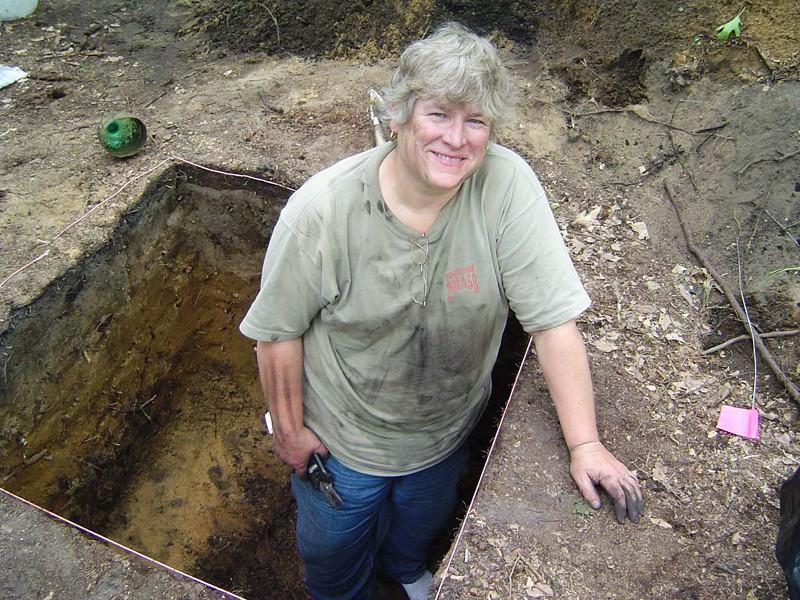Archeology, anthropology students span time, globe in pursuit of knowledge

Courtesy Photo / gsvu.edu Anthropology Professor Janet Brashler
Apr 2, 2012
Whether trying to uncover an elaborate resort hotel in Michigan that burned down in the late 19th Century, digging up human skulls from the Trypilian culture in the Ukraine or living in eco-villages in New Zealand, students majoring in archeology and anthropology are going to be busy this summer.
Russell Rhoads, chair of the anthropology department,said participating in these programs is important for students to practice their anthropology, and they must meet a requirement in a field school or internship in order to graduate.
Janet Brashler, professor of anthropology, said this year, archeology and anthropology students will work in Fruitport, Mich., during the spring term.
“Ground penetrating radar and magnetometer work will be done in Fruitport this summer,” she said, adding that this technology will help them reveal foundations to see if the students can uncover a hotel that burned down in 1881. Brashler has been doing field schools for 22 years in a variety of locations across Michigan, including along the Grand River and Muskegon River valleys.
About 20 students will participate, and Brashler can foresee the field school going on for a long time in various different locations. This school alternates every other year with an ethnographic field school.
The field schools are always very labor intensive, Brashler said.
“[It involves] digging holes, getting dirty, bug bites and poison ivy,” Brashler said. “We have a lot of fun.”
Students in the Anthropology in Ukraine study abroad program will visit the Chernobyl Museum and also engage in studies comparing different kinds of energy sources and agriculture in the community to the U.S.
“Another portion is archaeological excavation of a cave that is in the Western part of Ukraine,” Brashler said. She said the cave has been occupied by humans of all sorts of cultures for 5,000 years. In 2008, a group of 11 students found the skulls of 14 individuals ranging from children to adults from the Trypilian culture from Ukraine dating back from 3800 to 2600 B.C.E.
Anthropology professor Gwyn Madden said this finding is unique because there is only one other site that has been found with human remains from that particular period. What happened to these people is unknown, but this appears to be some sort of ritual, she said.
“The adult skulls that we have completed all have circular depression fractures in the back of the skull, suggesting that they were probably killed,” she said.
With her group of 18 students this summer, Madden hopes to increase the sample size and learn more about the health and culture of these individuals.
“If there’s anything else that can really tell us what was going on at the site, that’s what we’re hoping for, not that they’re going to leave a note or anything,” she said.
Other anthropology students will be studying in an internship-like program in eco-villages in New Zealand.
“These communities share an emphasis on social, environmental and economic sustainability,” said Heather Van Wormer, professor of anthropology.
According to the website, “in order to achieve these objectives, these communities experiment with various ecological designs, permaculture, ecological building, green production, alternative energy systems, as well as methods of community building.”
The focus of this project is to look at sustainability in both rural and urban parts of New Zealand and looking at the context and culture of sustainability, Van Wormer said.
“Students will go to Wilderland, [a city near Whitianga] and stay for two weeks and live with [the citizens in the village],” Van Wormer said. “They will learn composting, worm composting, garlic planting, tree pruning, how to harvest oranges, persimmons, avocados and much more, and sustainability as they are living with them.”
Students will then come back to an Earthsong Eco-Neighborhood near Auckland, where they will study how professional people are living in a sustainable urban sprawl.
Van Wormer said anthropology students will look at the big picture of sustainability in both rural Wilderland
and urban Auckland, as Anthropology is about looking at the big picture.
This year, 12 are going on trip, up from seven the year before, she said.






















